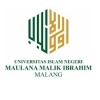Students’ Perception on Utilizing TikTok Videos for Vocabulary Acquisition
Abstract
The primary aim of this study is to uncover and comprehend students' perspectives on acquiring and using English language through the TikTok application. The study employed a descriptive qualitative research methodology to investigate the students' perspective of learning English vocabulary through the TikTok application and their attitudes toward the platform. In addition, this study employed an interview protocol with seven open-ended questions throughout the interview phase, involving a total of ten students. The findings indicate that the TikTok application provides users with various types of English vocabulary, such as daily vocabulary, idioms, and slang vocabulary. Additionally, the study explores both positive and negative perceptions of using TikTok for learning English vocabulary, as well as the benefits that students derive from using the platform. Based on the data, the majority of pupils acquire English vocabulary quickly by utilizing the TikTok program. Nevertheless, a drawback that students frequently mention as hindering their acquisition of new terminology is the distraction caused by applications. This research aims to make a valuable contribution to the effective utilization of technology, particularly social media, to enhance English vocabulary acquisition.
Full Text:
PDFReferences
Afidah, Nurul, Et. al. (2021). Investigating Students’ Perspectives on the Use of Tiktok as An instructional Media in Distance Learning During Pandemic Era. Jurnal Kajian Pendidikan dan Keislaman (Vol. 6, Issue 2). https://doi.org/10.32764/dinamika.v6i2.1872
Alghameeti, A. A. (2022). Is TiTok an Effective Technology Tool in English Vicabulary Expansion?. English Language Teaching (Vol. 15, Issue 12). https://doi.org/10.5539/elt.v15n12p14
Anumanthan, S., & Hashim. H. (2022). Improving the Learning of Regular Verbs through TikTok among Primary School ESL Pupils. Creative Education (Vol. 13, Issue 03, 896-912). https://doi.org/10.4236/ce.2022.133059
Angin, Emsi F. S. B.P., et al. Improving Students’ Listening Skills Using Tiktok at SMP Swasta Amalyatul Huda Medan. Juurnal Ilmiah Profesi Pendidikan, (Vol. 6, Issue 18). DOI: 10.29303/jipp.v6i4.312Chi, H., & City, M. (2023). (Vol. 3, Issue 1)
De Bot, K. & Larsen-Freeman, D. (2011). Researching Second Language Development from a Dynamic Systems Theory Perspective. (Vol. 5 Issue 24). https://doi.org/10.1075/111t.29.01deb
Harmer, J. (2001). The Practice of English language Teaching, Third Edition Completely Revised and Updated. (p. 283). https://Practice-Language-Teaching-Handbooks-Teachers/dp/0582403855
Herlisya, Destia & Wiratno, Purna. (2022). Having Good Speaking English through TikTok Application. Journal Corner of Education, Lingusitics, and Literature (Vol. 1, Issue 3). https://doi.org.10.54012/jcell.v1i3.35
Humaeroh, I., Irwandi, D., & Saridewi, N. (2018). Utilization of Open-Ended Problems Model to Analyze Students’ Creative Thinking Ability on Electrochemistry Lesson. Jurnal Penelitian dan Pembelajaran IPA (Vol. 4, Issue 02, 135). https://doi.irg/10.30870/jppi.v4i2.3620
Hunter, M. G. (2014). Qualitative Interview Techniques. ResearchGate (1-13). https://www.researchgate.net/punlication/22846930
Novitasari, N., & Addinna, A. (2022). Students; Perception on the Use of Tiktok for Learning English. Journal of English Language Teaching (Vol. 11, Issue 4, 566-579). https://doi.org/10.24036/jelt.v11i4.119484
Ichara Sinta, Z. (2022). Students’ Experience in Vocabulary Memorizing of Adjective by Using Tiktok Duet Video. In Cybernetics: Journal Educational Research and Social Studies (Vol. 3 Issue 1)
Ishwahyuni, Dwi. (2021). Embracing Social Media to Improve EFL Learners’ English Skill. Professional Journal of English Education (Vol. 4, No. 4)
Latif, Hisyam Nur A. (2021). Social Media Based EFL Learning: Opportunities and Challenges. Ittishal Educational Research Journal (Vol. 2, Issue 1, 11-21). DOI 10.51425/ierj.v2i1.17
Nguyen, Ha & Diederich, Morgan. (2023). Facilitating Knowledge Construction in Informal Learning: A Study of Tiktok Sicentific, Educational Videos. Elsevier:Journal of Computer & Education (Vol. 203)
Rahman, M. S. (2021). Analysis Regression and Path Model: The Influence Both Instagram and Tiktok in Improving Students’ Vocabulary. Sketch Journal (Vol. 1 48-61)
Rahmawati, Sari. (2021). Team Games Tournament: An Effective Techniques to Boost Students’ Reading Motivation and Reading Skill. Journal of English Language Teaching and Learning (Vol. 2, Issue 2, 43-50)
Rinda, Renata Kenanga, Novaman, Adriadi & Miqawati, Alfi H. (2018). Students’ Perspectives on social media-Based Learning of Writing through Instagram. Journal of English in Academic and Professional Communication (Vol. 5, Issue 1).
Safitri, Nurul. (2021). Teachers Strategies and Challenges in Stimulating the Students’ Creativity. Academia.
Ubaedillah. Et, al. (2021). An Exploratory Study of English teachers: The use of Social Media for teaching English on Distance Learning. Indonesian Journal of English language teaching and Applied linguistics (Vol. 5, Issue 2). DOI: 10.21093/ijetal.v5i2.753
DOI: https://doi.org/10.18860/jeasp.v7i2.24418
Refbacks
- There are currently no refbacks.

This work is licensed under a Creative Commons Attribution-ShareAlike 4.0 International License.







Editorial Office:
Pusat Pengembangan Bahasa
Program Khusus Pengembangan Bahasa Inggris (PKPBI)
Universitas Islam Negeri Maulana Malik Ibrahim Malang
Gedung C lantai 1
Jl. Gajayana No 50 Kota Malang, Jawa Timur, Indonesia
Kode Pos 65144, Telp/Fax : (0341) 570872
Email: jeasp@uin-malang.ac.id
JEASP : Journal of English for Academic and Specific Purposes is licensed under a Creative Commons Attribution-ShareAlike 4.0 International











